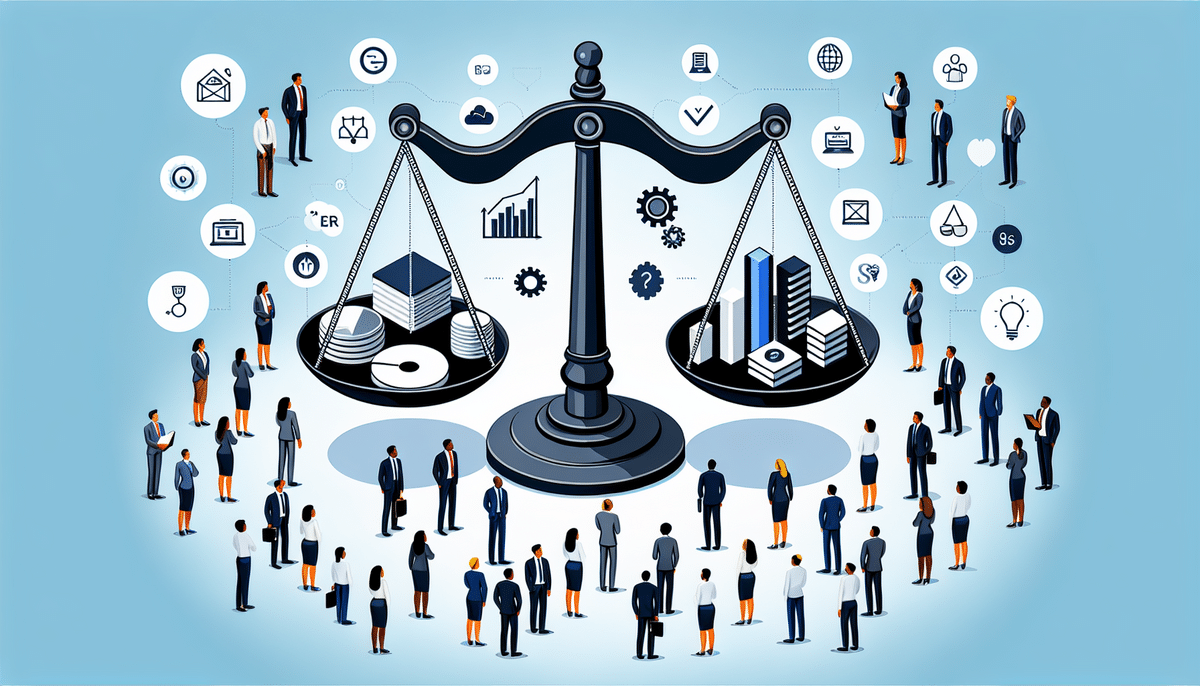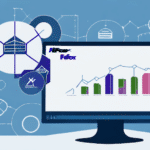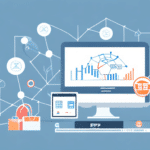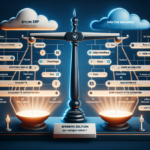Introduction to ERP Solutions: SAP Business One vs. Epicor ERP
Enterprise Resource Planning (ERP) software is crucial for managing and integrating the core processes of a business. SAP Business One and Epicor ERP are two prominent solutions in this space, each catering to different business sizes and needs. This article provides an in-depth comparison of these two systems, analyzing their key features, pricing, implementation processes, customization options, user interfaces, scalability, integration capabilities, customer support, industry-specific solutions, security features, reporting and analytics, and real-world case studies. By the end, you'll have a comprehensive understanding to determine which ERP system aligns best with your business requirements.
Key Features and Functionalities
SAP Business One
- Real-Time Financial Management: Offers comprehensive financial tracking and reporting capabilities.
- Sales and Customer Management: Streamlines sales processes and enhances customer relationship management.
- Purchasing and Inventory Control: Optimizes inventory levels and procurement processes.
- Manufacturing and Project Management: Supports production planning and project tracking.
- Analytics and Reporting: Provides actionable insights through robust reporting tools.
Epicor ERP
- Financial Management: Advanced financial modules for comprehensive financial oversight.
- Production Management: Enhances manufacturing processes with detailed production planning.
- Sales and Customer Management: Integrated sales tools to manage customer interactions effectively.
- Supply Chain Management: Optimizes supply chain operations for increased efficiency.
- Business Intelligence and Analytics: Delivers deep insights through advanced BI tools.
According to Gartner's Magic Quadrant, both SAP and Epicor consistently rank highly in ERP solutions, highlighting their robust feature sets and reliability.
Pricing and Implementation
Pricing Comparison
The pricing structures of SAP Business One and Epicor ERP vary based on factors such as the number of users and required modules. SAP Business One is typically more affordable for small to medium-sized businesses, with pricing influenced by the number of users and specific functionalities selected. In contrast, Epicor ERP often requires a higher initial investment, reflecting its advanced features suited for mid-sized to large enterprises.
Both systems offer subscription-based pricing models, providing flexibility for businesses with varying budgets. For detailed pricing, visit the official SAP Business One and Epicor ERP websites.
Implementation Processes
Implementing ERP systems is a significant undertaking. SAP Business One is known for its relatively straightforward implementation process, making it suitable for smaller businesses with simpler requirements. On the other hand, Epicor ERP's implementation can be more complex and time-consuming, often necessitating specialized technical expertise due to its extensive functionalities.
Both vendors emphasize the importance of proper planning and training to ensure successful deployment. According to a Capterra report, efficient implementation is critical to minimizing downtime and maximizing the ERP's benefits.
Customization and User Experience
Customization Options
Customization is a key factor in selecting an ERP system. SAP Business One offers built-in customization tools, allowing businesses to create custom fields and tables to capture specific data. Additionally, it provides flexible reporting options to tailor insights to business needs.
Epicor ERP excels in customization with a comprehensive development environment that enables the creation of custom applications and workflows. This flexibility is particularly beneficial for businesses with unique processes that standard ERP functionalities may not accommodate.
User Interface and Experience
A user-friendly interface enhances the adoption and efficiency of an ERP system. SAP Business One boasts a modern and intuitive interface, ensuring ease of use across different devices and platforms. Its mobile app further facilitates access to critical business information on-the-go.
Epicor ERP offers a familiar interface for users accustomed to traditional ERP systems, with extensive customization options to tailor the user experience. This adaptability allows businesses to modify the interface to suit specific workflows and preferences.
Scalability and Integration Capabilities
Scalability
Both SAP Business One and Epicor ERP are scalable solutions that can grow with your business. SAP Business One supports up to 150 users, making it ideal for small to medium-sized enterprises. In contrast, Epicor ERP can accommodate up to 1,000 users, catering to larger organizations with more complex operational needs.
Integration Capabilities
Integration with other systems is essential for seamless operations. SAP Business One offers numerous pre-built integrations with popular third-party applications, enhancing its functionality without extensive development efforts.
Epicor ERP provides a robust set of tools for custom integrations, allowing businesses to connect with a wide range of external systems and applications. Both ERP solutions can integrate with major e-commerce platforms like Shopify and Magento, as well as CRM systems such as Salesforce and HubSpot.
Security, Support, and Industry Solutions
Security Features
Data security is paramount in ERP systems. Both SAP Business One and Epicor ERP offer robust security measures, including user access controls, data encryption, and audit trails. Epicor ERP goes further by incorporating advanced security features such as role-based security and multi-factor authentication, providing an additional layer of protection.
Customer Support
Effective customer support ensures that businesses can resolve issues promptly and maintain smooth operations. SAP Business One and Epicor ERP both provide comprehensive support options, including phone and email assistance, extensive online documentation, and active user communities. Additionally, Epicor ERP offers personalized consulting services to help businesses optimize their use of the software.
Industry-Specific Solutions
Tailored solutions for specific industries can significantly enhance the relevance and effectiveness of an ERP system. SAP Business One provides specialized solutions for sectors such as retail, manufacturing, and healthcare. Meanwhile, Epicor ERP caters to a broader range of industries, including aerospace, automotive, electronics, and distribution, ensuring that diverse business needs are met effectively.
Reporting, Analytics, and Case Studies
Reporting and Analytics
Advanced reporting and analytics capabilities are essential for informed decision-making. SAP Business One includes built-in tools for creating customized reports and dashboards, enabling businesses to monitor key performance indicators effectively.
Epicor ERP offers sophisticated business intelligence and analytics tools that provide deep insights into various aspects of operations. These tools facilitate data-driven strategies and continuous improvement.
Case Studies
Real-world case studies demonstrate how businesses have successfully implemented ERP systems to drive growth and efficiency. For instance, a manufacturing company using SAP Business One reported a 30% increase in operational efficiency, while a distribution firm leveraging Epicor ERP achieved a 25% reduction in inventory costs. These success stories highlight the tangible benefits of selecting the right ERP solution for your business.
Explore more case studies on the SAP Business One Case Studies and Epicor ERP Case Studies pages.
Final Considerations: Choosing the Right ERP for Your Business
Choosing between SAP Business One and Epicor ERP depends on the size, complexity, and specific needs of your business. SAP Business One is ideal for small to medium-sized businesses seeking a user-friendly and cost-effective solution with essential ERP functionalities. In contrast, Epicor ERP is better suited for mid-sized to large enterprises that require advanced features, greater scalability, and extensive customization options.
Consider factors such as your budget, implementation timeline, required features, and long-term growth plans when making your decision. Consulting with an ERP specialist and conducting a thorough needs assessment can further aid in selecting the system that best aligns with your business objectives.
For more information on ERP solutions, refer to authoritative sources like Gartner's ERP Glossary and Capterra's SAP Business One Overview.




















